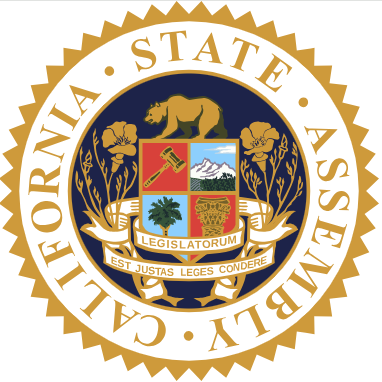 Last Friday, the Assembly Appropriations Committee stopped a number of bills opposed by the California Chamber of Commerce because of affordability concerns, including two Cost Drivers. But the committee advanced other bills that will increase costs for small businesses and consumers.
Last Friday, the Assembly Appropriations Committee stopped a number of bills opposed by the California Chamber of Commerce because of affordability concerns, including two Cost Drivers. But the committee advanced other bills that will increase costs for small businesses and consumers.
Cost Drivers Blocked
Not moving after the May 23 meeting of Assembly Appropriations:
AB 405 (Addis; D-Morro Bay), which would have imposed costly, duplicative, and misaligned regulatory requirements on apparel companies, increasing clothing prices and posing affordability challenges for Californians. The bill sought to dramatically expand existing disclosure rules under SB 253 (2023), for which rulemaking hasn’t even begun.
AB 1221 (Bryan; D-Los Angeles), which would have imposed impractical requirements on employers of every size relating to any worker data collected by a workplace surveillance tool, a term defined so broadly that it would have affected everything from security footage to emails. These requirements would have driven up costs and affected consumer prices.
Also Held in Committee
Among the other bills blocked in Assembly Appropriations were:
AB 1188 (Ortega; D-San Leandro), which would have upended California’s ballot measure process. The unnecessary changes would have made ballot initiatives lengthy and more confusing for voters.
Legislation that would have led to higher costs for health care premiums or prescription drugs: AB 1429 (Bains; D-Delano), AB 371 (Haney; D-San Francisco), AB 384 (Connelly; D-San Rafael), AB 510 (Addis; D-Morro Bay), AB 577 (Wilson; D-Suisun City) and AB 910 (Bonta; D-Alameda).
AB 1355 (Ward; D-San Diego), which would have placed new restrictions around location data collection and use practices by businesses in a manner that would have undermined and caused confusion with the California Consumer Privacy Act, which already addresses the policy questions and data privacy concerns.
AB 728 (Lee; D-San Jose), sought to newly regulate anti-aging cosmetics. The bill would have treated safe, over-the-counter skincare products as though they were dangerous controlled substances, setting a troubling precedent for government overreach into personal care choices.
AB 1271 (Bonta; D-Alameda), which would have created duplicative and burdensome reporting requirements, ignoring that federal law and the Federal Communications Commission already ensure all relevant information needed to make informed choices among broadband providers and service plans is reported and available to consumers.
Cost Cutters Moving Forward
Two bills improving the state’s affordability moved to the Assembly Floor:
AB 265 (Caloza; D-Los Angeles), allowing the Office of Small Business Advocate to provide grants to small businesses impacted by the Los Angeles fires to help them recover and rebuild.
AB 1138 (Zbur; D-Hollywood), which originally sought to more than double the state’s film tax credit, was amended to return the credit to the current annual authorization amount of $330 million.
Cost Drivers Still Threatening California
AB 858 (Lee; D-San Jose) would unnecessarily transform prior COVID-19 specific law — creating an onerous and stringent process for specific employers to return employees to the workforce for specified industries — into a new mandate that would apply to any state of emergency.
AB 1234 (Ortega; D-San Leandro) seeks a new, automatic 30% penalty on all orders issued by the Labor Commissioner, penalizing employers that exercise their due process rights. The bill would also impose other burdensome changes to the existing claims process.
AB 1018 (Bauer-Kahan; D-Orinda) would limit the use of automated decision systems (ADS), including by small businesses, which will lead to significant liability and increased costs that will ultimately be borne by consumers. It also would hinder many beneficial uses of ADS, including but not limited to enabling faster approvals and expanded access to credit and enhancing real-time fraud detection.
AB 1331 (Elhawary; D-Los Angeles) would undermine safety in every California business by effectively prohibiting the use of any surveillance technology in the workplace, including security cameras, cybersecurity systems, and anti-theft devices.
Other Assembly Bills Moving Ahead
AB 325 (Aguiar-Curry; D-Winters) would prohibit a person from using or distributing any pricing algorithm that uses, incorporates or was trained with nonpublic competitor data. Much like SB 1154 (Hurtado) last year, a bill that was designated a Job Killer, it would fail to actually limit the bill to nonpublic data in any meaningful way. The most notable difference between this bill and SB 1154 is that this bill does not include SB 1154’s additional liability provisions. AB 325 remains as serious a concern, in part because other related bills that address the liability components of these issues, and existing law impose significant liability on the misuse of pricing algorithms. Such liability, combined with the bill’s broad and vague standards, would have a chilling effect on the use of such technologies among businesses, particularly smaller ones that rely more heavily on these technologies to be more competitive with larger businesses with access to far more data.
AB 914 (Garcia; D-Rancho Cucamonga) intends to significantly expand regulatory fee authority for the California Air Resources Board (CARB) without adequate legislative oversight while providing sweeping new authority for statewide regulation of indirect sources of emissions.
AB 1313 (Papan; D-San Mateo) would mandate that the State Water Resources Control Board develop permits for stormwater discharges from “commercial, industrial, and institutional” facilities. Compliance costs would be substantial and in many regions of the state, it is likely that compliance would be infeasible. The permit would be enforceable through a private right of action, making it likely that citizen lawsuits would become pervasive.

